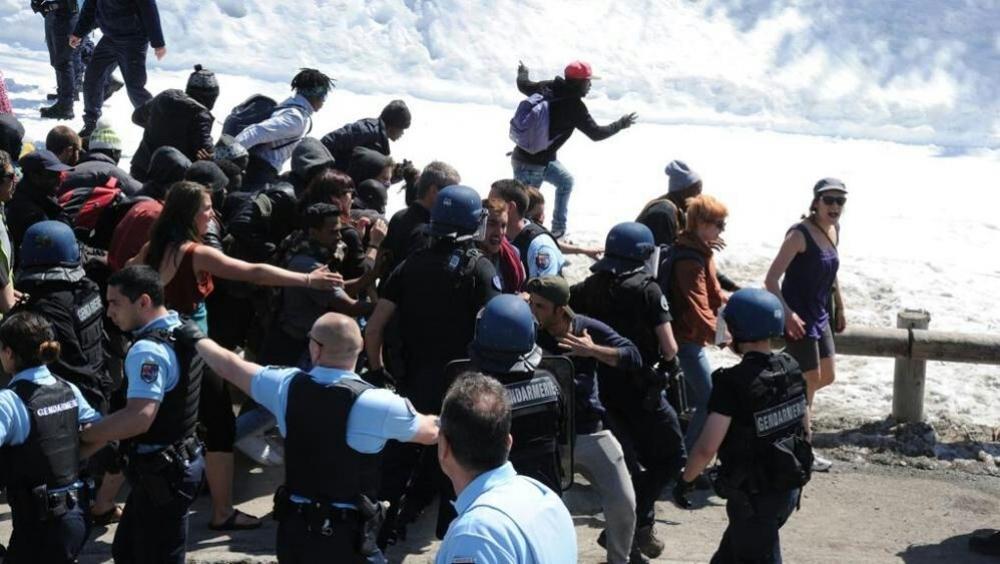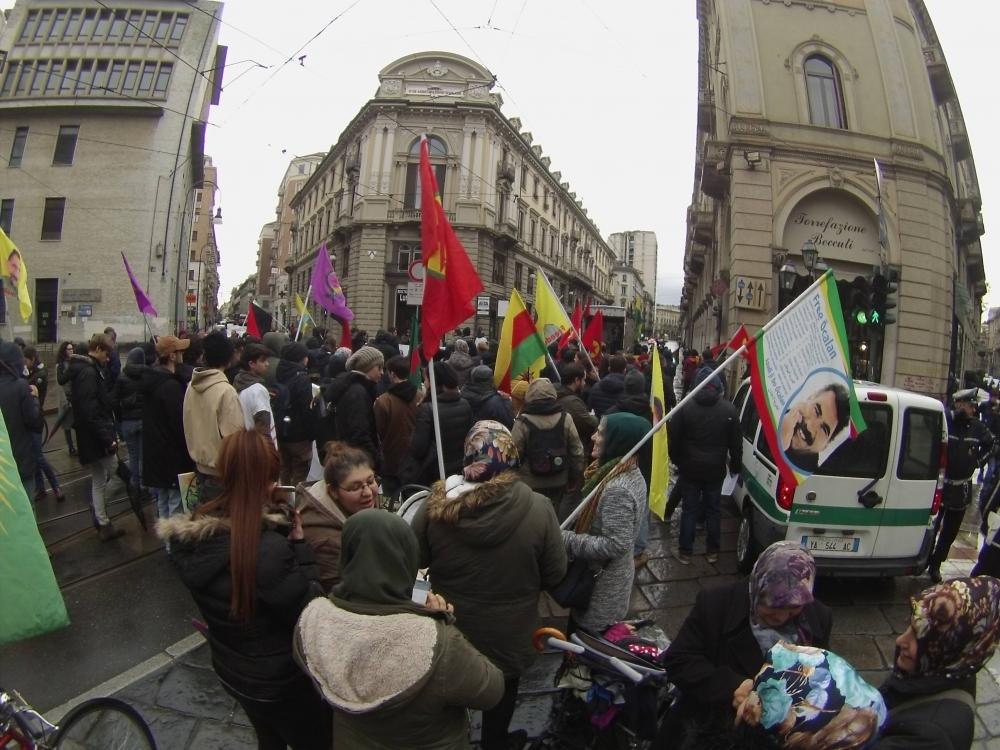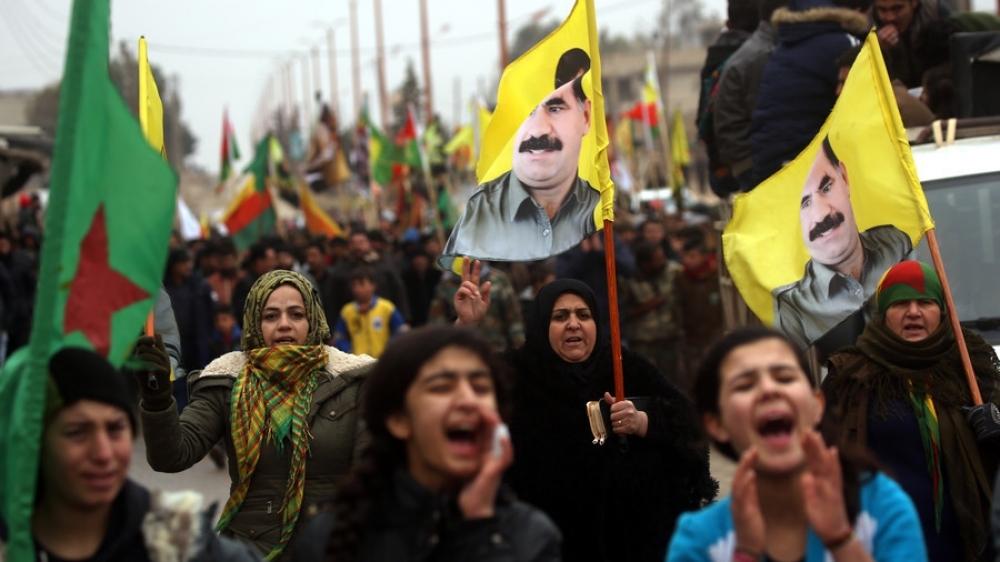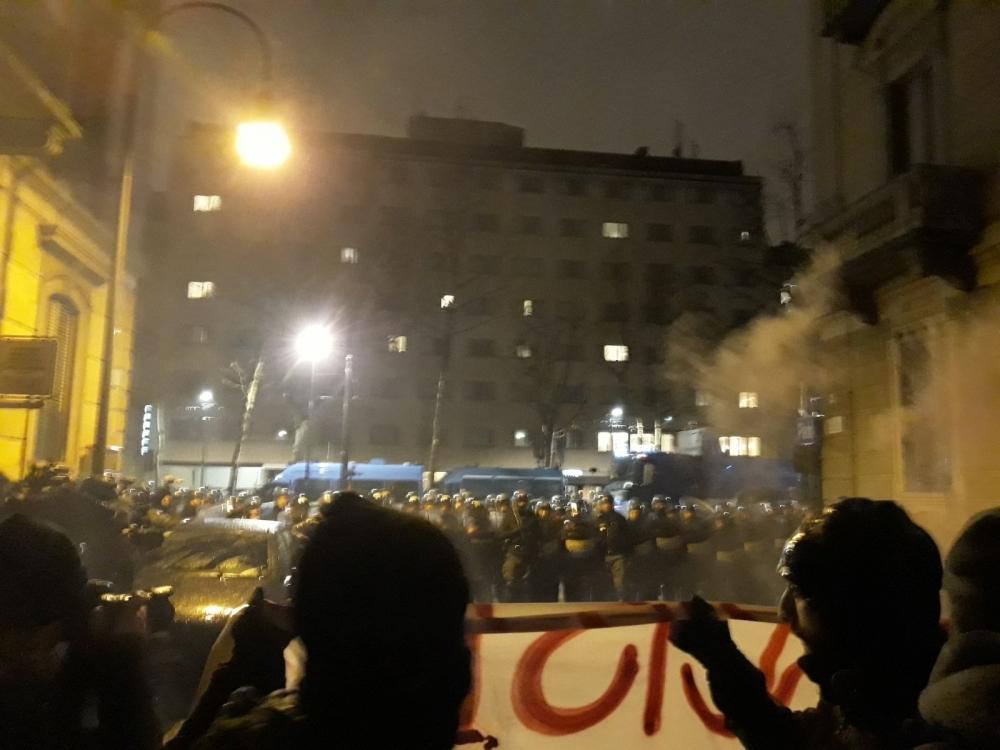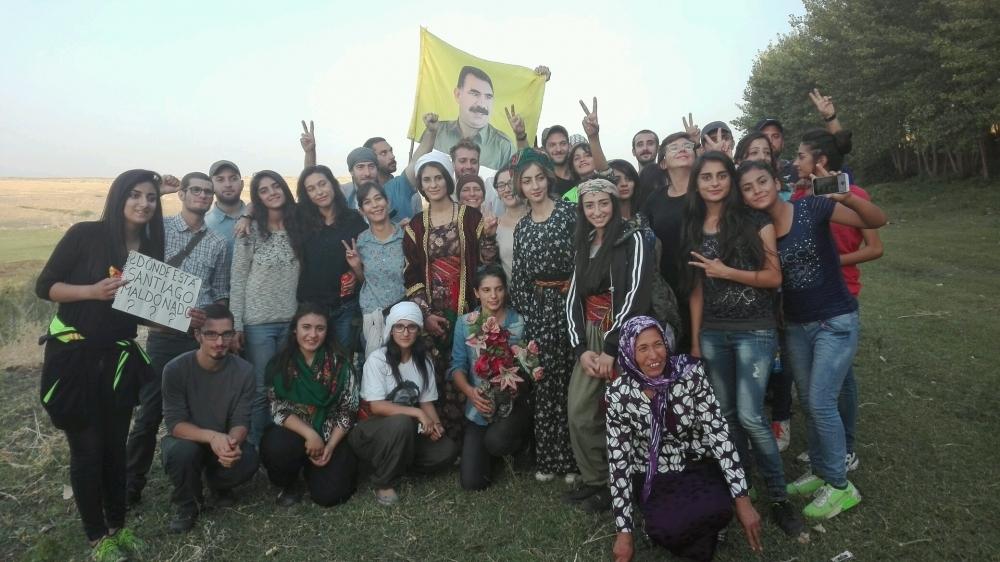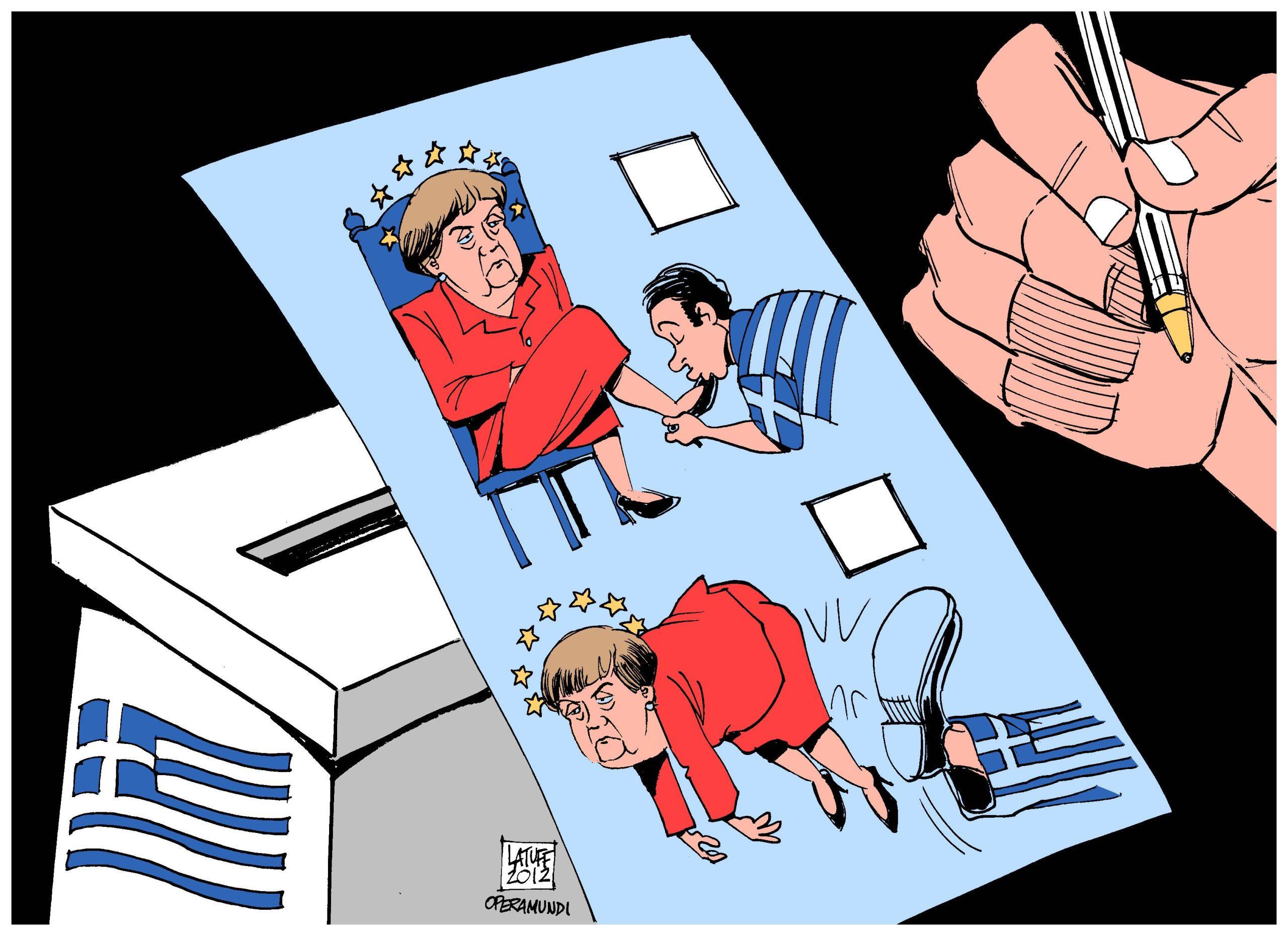
The Time of Refusal
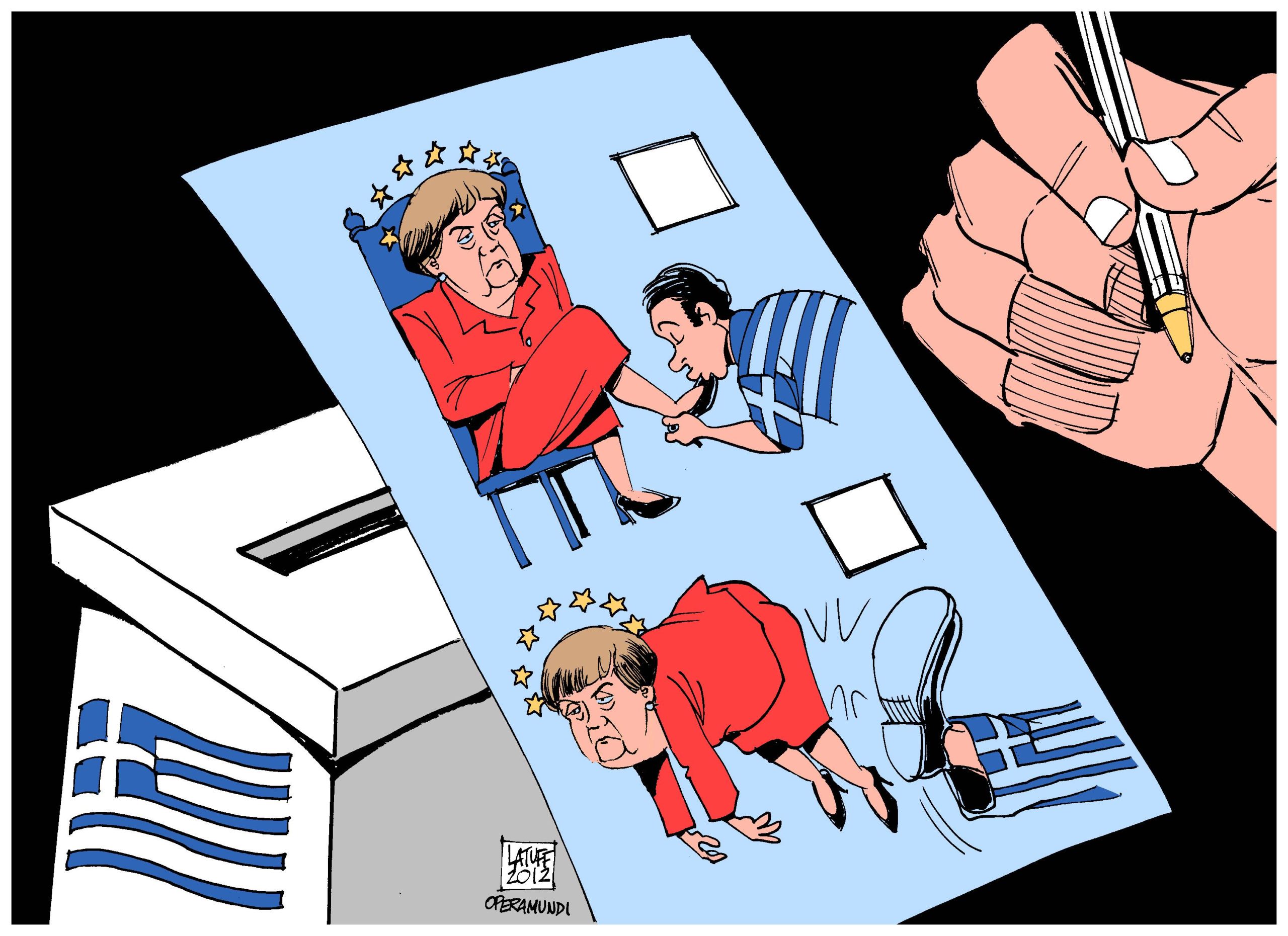
Now, after the break of the negotiations with the Troika and the calling of the referendum on the terms of the so-called “agreement” (i.e. diktat), some results and elements of reflection are already evident, regardless of the outcome. The first is that there is a certain loser: leftist Europeism, of those saying “a bad European Union is better that no European Union”, of those that let themselves be tricked by such a discourse and reproduce the alternative between EU and return to the nation-State as an anathema. Parts of the movements have been influenced by this order of discourse: the Blockupy experience, for example was an insider of its. Today, lady Merkel yells from her bridles of command: “if the Euro fails the European Union fails, too”. What have the leftist Europeist to say about that? The truth is that one can quibble as much as he wants on the difference between Europe and European Union, and between these categories and that of austerity. However, for those looking to such philosophical issues without the money to make it to the end of the month, reality is far more simple: today, Europe means European Union, and European Union means austerity. Therefore, one can not struggle against austerity without struggling against this Europe.
In order to struggle against this Europe, yet contrarily to what leftist and rightwing nationalists think about that, it is essential to build struggles on European and international level – from Athens to the Ventimiglia reef. Therefore, if we are to fight in an effective way on a mass scale against austerity and creeping fascisms at the same time, this is the only available option: to start from the refusal of this Europe in order to give it a completely opposite turn against the Salvinis and the Le Pens (even Brunetta [one of Berlusconi’s sidekicks, who in turn voted back in 2011-2 to support austerity measures in Italy] now dresses up as a specious symphatizer of the Greek referendum, as a proof of the popular consensus for the break with the EU and of the capacity that it showed to force its enemies to pursue it on an hostile ground to them).
The second element is that the European and international institutions are forced to take off their mask: from now on, they cannot even use the semblance of democracy. Democracy dies in the shadows of the Parthenon, where it was born some millennia ago. Its history began marked by slavery and ends in the same way.
Still, oppression is not a destiny. It can be broken and overturned, this is the third element. Tsipras and Syriza did it as they broke the mystification of the negotiation and called the referendum. They did it without caring about the Troika threat or the closure of the banks. They did it by making public transport free in these days, which was a symbolical and concrete important ground of the struggles of the last years – just consider the metropolitan insurgencies in Brazil in 2013. As stock exchanges and banks close, an embryonic or little more than symbolical possibility for the reappropriation of accumulated wealth opens up (at least a hint of it).
They did it in a probably tardive way, largely wasting time in a bogus negotiation that had no other goal than strenghtening the position of the financial dictatorship, that is inclined to sell as technical and objective those data that which belongs instead to the field of forces and decision of politics. Now, in the time of disruption, politics make a comeback as a tool of struggle against technic. In any case, the fact is that Syriza has – no matter if too soon or too late, due to will or to force – managed to overturn what the Bruxelles’ technocrats presented as an objective destiny. Syriza simply did it by putting itself at the service of the movements and the struggles by avoiding the level of false negotiation where a diktat is styled to look like dialogue. Instead, Syriza broke it by picking up the great legacy of the insurgency in Greece in the last years: the refusal. That is why the no, the “oxi”, today becomes a unifying catchphrase. Because that no is able to talk to the social composition hit by the crisis far more and better than any alternative proposal, that once again would fall in the trap of financial and mercantile technicism. Because that no does not accept the table, but overturns it. Because that no is the lexicon of the movements against austerity: no, we do not want to keep paying for the crisis. That no, far beyond the outcome of the referendum, can then become a space of possibilities, if we will be able to generalize it and make it a program of struggle. Laying postmodernism to rest, there is no such “pro-” that is not, first and foremost, an “anti-“; there is no possibility of building new forms of friendship that is not the individuation of an enemy in the first place.
Will Syriza resist or will it surrender? That is not a problem of ours since we neither are nor do we want to be, supporters or spectators of this game. Our problem is how we use this space that has been opened up. We repeat, it matters little whether Syriza was forced to or chose to do it. Syriza brought the possibilities of a leftist or representative politics-reformism (what Syriza itself embodies),by uncovering their exhaustion, to the extreme point of tension and to the point of a breakdown. Now the struggles take the floor back. In this way, the problem is not whether the Greek future is forward with the Euro or backward with the Drachma: what we must think about is how to fight both these options, in order to produce the beginning of a new history.
There was a time when they used to say that the chain will break not where capital is weakest, but where the working class is strongest. Without a doubt, in these years Greece has been a spearhead of social conflict: those who said that this level of struggle never would achieve any results should now change their ideas on the matter. Actually, for better or for worse, results are not necessarily immediate. Today, Greece could be the link to force in order to begin thrusting the entire chain of command into crisis. The poet said: “But where the danger is, also grows the saving power”. The struggles, when they are radical, always assert this level of disruption: placed on the edge of the abyss, let’s then start to build the lines of the possible transformation. Let’s leave the sad spectacle of the already known to everyone else, to the imaginary technocrats and prudent managers of the existing state of things.
Ti è piaciuto questo articolo? Infoaut è un network indipendente che si basa sul lavoro volontario e militante di molte persone. Puoi darci una mano diffondendo i nostri articoli, approfondimenti e reportage ad un pubblico il più vasto possibile e supportarci iscrivendoti al nostro canale telegram, o seguendo le nostre pagine social di facebook, instagram e youtube.












